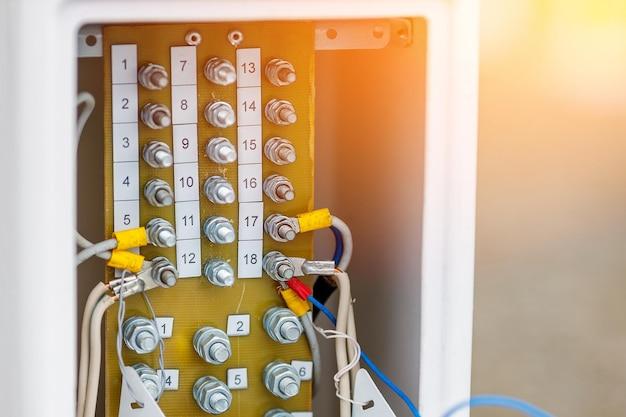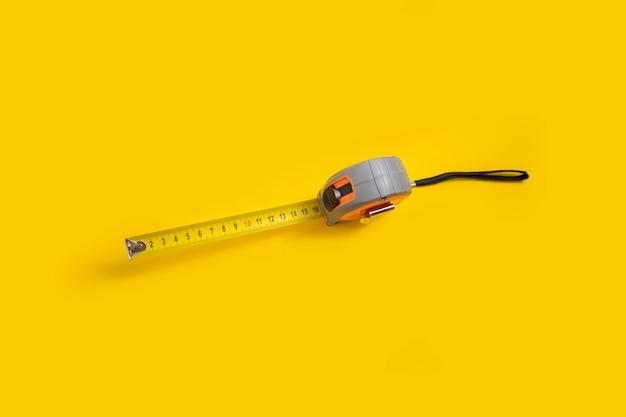Welcome to our blog post on wire gauges! If you’ve ever wondered about the various sizes of wires and what they mean, you’re in the right place. In this article, we’ll specifically address the question of whether 14 or 16 gauge wire is bigger. But before we dive into that, let’s first understand what wire gauges are and how they are measured.
Wire gauges refer to the thickness of a wire, and they are denoted by numbers. The gauge size indicates the diameter or cross-sectional area of the wire, with smaller numbers representing thicker wires. So, when comparing 14 and 16 gauge wires, the lower number, 14, suggests a thicker wire compared to 16 gauge.
Now, you might be wondering why wire size matters and what applications these specific gauges are suitable for. We’ll explore these questions and more in the sections to follow. So, let’s get started and unravel the mysteries of wire gauges together!
Which is Bigger: 14 Gauge or 16 Gauge Wire
Understanding Wire Gauges
When it comes to electrical wiring, the gauge of the wire plays a crucial role. Wire gauge refers to the diameter of the wire, and it determines the amount of current it can safely carry. The higher the gauge number, the smaller the wire diameter. So, the question here is, which is bigger: 14 gauge or 16 gauge wire?
Unraveling the Mystery
Let’s get straight to the point. In simple terms, 14 gauge wire is bigger than 16 gauge wire. Now, before your mind starts conjuring images of enormous wires battling it out, let me explain further.
The Size Does Matter
Wire gauge is measured on a standardized system. In this system, 14 gauge wire has a diameter of approximately 1.6 millimeters (or 0.064 inches), while 16 gauge wire has a diameter of around 1.3 millimeters (or 0.051 inches). You might think the difference is minuscule, but in the world of electrical wiring, even a small variance in gauge can have significant implications.
Determining Factors
Several factors influence the choice of wire gauge for different applications. One crucial factor is the current-carrying capacity needed for the specific electrical circuit. In general, larger diameter wires (lower gauge numbers) can carry more current without heating up excessively, which can lead to safety hazards.
The Power of 14 Gauge Wire
With a wider diameter, 14 gauge wire can handle a higher current load compared to 16 gauge wire. This makes it suitable for applications requiring more power, such as larger appliances and electrical outlets that can support heavy-duty equipment. So, if you’re planning to install a 220-volt air conditioner in your living room, you’ll want to opt for 14 gauge wire.
The Versatility of 16 Gauge Wire
On the other hand, 16 gauge wire is commonly used in lighter-duty applications. It can handle less current compared to 14 gauge wire but is still suitable for most household electrical needs. From lighting fixtures to power outlets for charging your devices, 16 gauge wire has got you covered for most of the typical residential wiring projects.
Making the Right Choice
When it comes to deciding between 14 gauge and 16 gauge wire, you need to assess your specific needs. Consider the power requirements of your devices, the length of the wire run, and any electrical codes or regulations in your area. It’s always a good idea to consult a professional electrician to ensure the safety and efficiency of your electrical installations.
Wrapping Up
So, there you have it! In the showdown between 14 gauge and 16 gauge wire, 14 gauge takes the crown for having a larger diameter and the ability to handle more current. Remember, whether you’re rewiring your home or embarking on a DIY electrical project, choosing the right wire gauge plays a critical role in keeping your electrical system running smoothly and safely. Don’t hesitate to reach out to the experts when you need guidance, as they’ll help you make enlightened decisions.
FAQ: Which Is Bigger 14 or 16 Gauge Wire
Welcome to our comprehensive FAQ section where we answer all your burning questions about wire gauge sizes. Whether you’re a DIY enthusiast, an electrician, or simply curious about the world of wires, we’ve got you covered. So, grab your coffee and let’s dive right in!
What is 14 gauge wire used for
14 gauge wire is commonly used for household electrical wiring applications such as general lighting circuits, outlets, and switches. It is suitable for circuits with a maximum load of 15 amps.
How big is a 14 gauge wire
A 14 gauge wire measures roughly 1.63 millimeters or 0.064 inches in diameter. To put it in perspective, it’s slightly thicker than a standard paperclip.
Which is thicker: 12 gauge or 16 gauge wire
12 gauge wire is thicker than 16 gauge wire. In fact, while 12 gauge wire has a diameter of approximately 2.05 millimeters or 0.081 inches, 16 gauge wire measures around 1.29 millimeters or 0.051 inches in diameter.
What is thicker: 12 gauge or 14 gauge wire
Compared to 14 gauge wire, 12 gauge wire is thicker. Its diameter measures roughly 2.05 millimeters or 0.081 inches, making it visibly larger than 14 gauge wire.
Which is bigger: 18 or 20 gauge wire
When it comes to wire gauge sizes, 18 gauge wire is bigger or thicker than 20 gauge wire. The diameter of 18 gauge wire is approximately 1.02 millimeters or 0.040 inches, whereas 20 gauge wire measures around 0.81 millimeters or 0.032 inches.
What can you pierce with a 14 gauge needle
A 14 gauge needle is commonly used for body piercings such as eyebrows, tongue piercings, and nipple piercings. It’s also occasionally used for cartilage piercings.
How do I choose a wire size
When choosing a wire size, you should consider various factors such as the electrical load, length of the wire run, and the maximum current the wire needs to carry. It’s best to consult electrical codes, guidelines, or an electrician to ensure you select the appropriate wire size for your specific application.
Is 14 AWG the same as 14 gauge
Yes, 14 AWG (American Wire Gauge) is the same as 14 gauge wire. The term “AWG” is often used when referring to wire gauge sizes in the United States.
What are the gauge sizes
Wire gauge sizes in the United States typically range from 0 (largest) to 40 (smallest). The higher the gauge number, the smaller the wire diameter.
Is 16 or 14 gauge wire smaller
Compared to 14 gauge wire, 16 gauge wire is smaller. With a diameter of approximately 1.29 millimeters or 0.051 inches, 16 gauge wire is visibly thinner than 14 gauge wire.
How big is a 16 gauge wire
A 16 gauge wire measures around 1.29 millimeters or 0.051 inches in diameter. To give you a visual, it’s about as thick as an average staple.
Is a 16 gauge bigger than a 20 gauge
Yes, 16 gauge wire is bigger or thicker than 20 gauge wire. With a diameter measuring approximately 1.29 millimeters or 0.051 inches, 16 gauge wire dwarfs the 20 gauge wire, which measures around 0.81 millimeters or 0.032 inches in diameter.
What is the difference between 14 AWG and 16 AWG
The difference between 14 AWG and 16 AWG lies in their sizes. While 14 AWG wire has a diameter of approximately 1.63 millimeters or 0.064 inches, 16 AWG wire measures around 1.29 millimeters or 0.051 inches in diameter.
What happens if you use 14 gauge wire on a 20 amp circuit
Using 14 gauge wire on a 20 amp circuit is not recommended. Since 14 gauge wire is only compatible with 15 amp circuits, using it on a 20 amp circuit may lead to overheating or potentially cause a fire hazard. It’s essential to match the wire gauge with the appropriate circuit rating to ensure safety.
What is bigger: 12 gauge or 16 gauge
12 gauge wire is bigger or thicker than 16 gauge wire. With a diameter measuring approximately 2.05 millimeters or 0.081 inches, 12 gauge wire is noticeably larger than 16 gauge wire, which measures around 1.29 millimeters or 0.051 inches in diameter.
Can you connect 14 gauge wire to 16 gauge wire
Yes, you can connect 14 gauge wire to 16 gauge wire within the same circuit. However, it’s important to consider the load and circuit capacity. If the 14 gauge wire is connected to a 15 amp circuit and the 16 gauge wire to a lower load circuit, it should function effectively. Nevertheless, it’s always recommended to consult a professional to ensure proper wiring practices.
Which is bigger: 10 or 12 gauge wire
10 gauge wire is bigger or thicker than 12 gauge wire. With a diameter measuring approximately 2.588 millimeters or 0.102 inches, 10 gauge wire surpasses 12 gauge wire, which measures around 2.052 millimeters or 0.081 inches in diameter.
Which gauge wire is thickest
The thickest commonly used wire gauge sizes start from 1/0 (pronounced “one-ott”) and continue to 4/0. These are known as “0 gauge” or “zero gauge” wires. The larger the number in front of the slash, the thicker the wire diameter.
Is 14 gauge bigger than a 16 gauge
Yes, 14 gauge wire is bigger or thicker than 16 gauge wire. With a diameter measuring approximately 1.63 millimeters or 0.064 inches, 14 gauge wire appears more robust compared to 16 gauge wire, which measures around 1.29 millimeters or 0.051 inches in diameter.
What is bigger: 16 gauge or 18 gauge
16 gauge wire is bigger or thicker than 18 gauge wire. With a diameter measuring approximately 1.29 millimeters or 0.051 inches, 16 gauge wire surpasses 18 gauge wire, which measures around 1.02 millimeters or 0.040 inches in diameter.
Which is stronger: 12 gauge or 16 gauge steel
When comparing steel gauges, 12 gauge steel is stronger and thicker than 16 gauge steel. The higher the gauge number, the thinner the steel, so 12 gauge steel is more robust and suitable for heavy-duty applications, whereas 16 gauge steel is better suited for lighter applications.
Can I use 14 gauge wire instead of 18
Using 14 gauge wire instead of 18 gauge wire depends on the application and the circuit’s requirements. If the circuit is designed for 18 gauge wire, substituting it with 14 gauge wire may result in exceeding the circuit’s capacity and potentially cause damage. To ensure safety and compliance, always use the wire size recommended for the specific circuit.
That wraps up our FAQ section on wire gauge sizes. We hope we’ve answered all your questions and shed some light on this fascinating world of wires. Remember, when in doubt, consult a professional electrician to ensure your wiring projects are in safe hands. Stay wired and stay safe!
Disclaimer: The information provided in this article is for informational purposes only and should not be considered professional advice. Always consult a qualified electrician or professional for specific guidance on your wiring projects.

